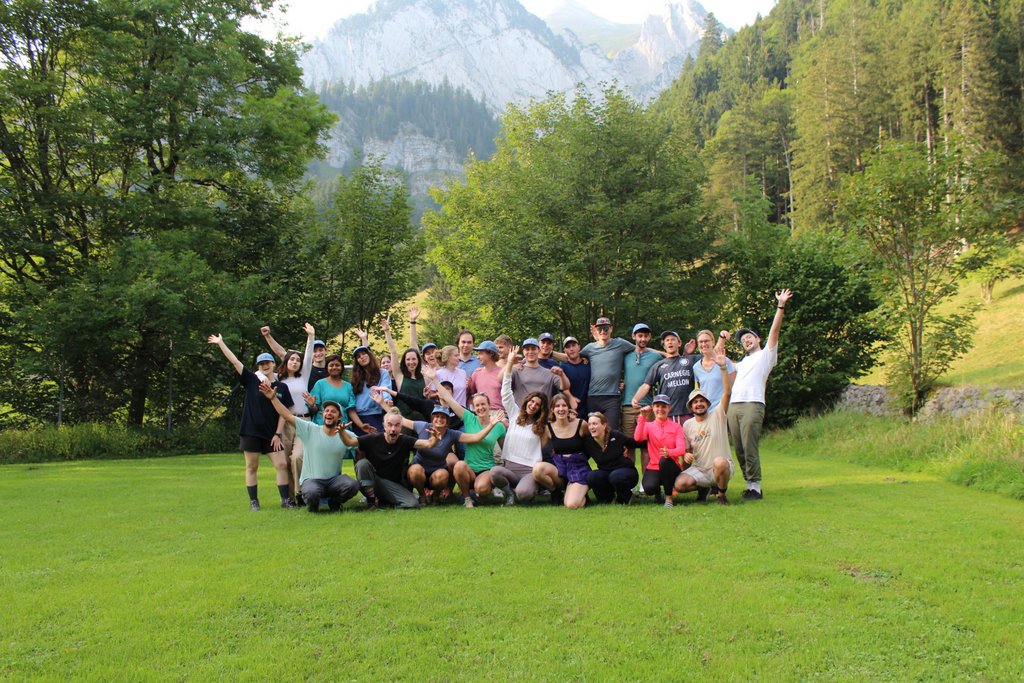Campus - 09.07.2025 - 11:02
Launched in 2023, the Thrive Impact Summer School at HSG addresses a pressing issue at the intersection of sustainability and social innovation each year. In previous years, a total of around 80 students gathered at the HSG's SQUARE to discuss climate justice (2023) and sustainable investing (2024) and develop solutions. The 2025 edition of the school will focus on the future of food systems. ‘Our food systems are currently responsible for around one third of global CO2 emissions. They must become significantly more sustainable while feeding a growing number of people.’ This is how project manager Julia Bahlmann from the Center for Social Innovation at HSG (CSI-HSG) describes the fundamental challenge.
To kick things off, participants will spend two days in Wildhaus in the Toggenburg region. Hiking, experiencing nature and getting away from everyday life not only serve as team building, but also as a mental anchor point: What does nutrition mean when you see yourself more as part of nature?
The students then spend five intensive days working on specific challenges at the HSG's SQUARE. After an introduction to the global interrelationships of food systems, they tackle real-life cases provided by partners such as the UN, Nestlé and a selected HSG start-up.
‘The participants are deliberately chosen to be interdisciplinary, ranging from economics to medicine to engineering. This diversity is essential for really getting to grips with complex problems,’ says Bahlmann. Around a third of the 30 or so students come from HSG, with the rest mainly from the EU. But there are also participants from Turkey and Cameroon. HSG students attend the School as a course that is part of the HSG's contextual studies programme. This comprises 25 per cent of all coursework and covers cultural, social and historical topics.
During the week, the student teams develop solutions for the cases, interspersed with short expert input and opportunities for exchange. At the end, they present their concepts to the partner organisations.
In addition to the professional exchange, an international network is created that extends beyond the Summer School – for the students as well as for the HSG.
More articles from the same category
This could also be of interest to you
Discover our special topics
